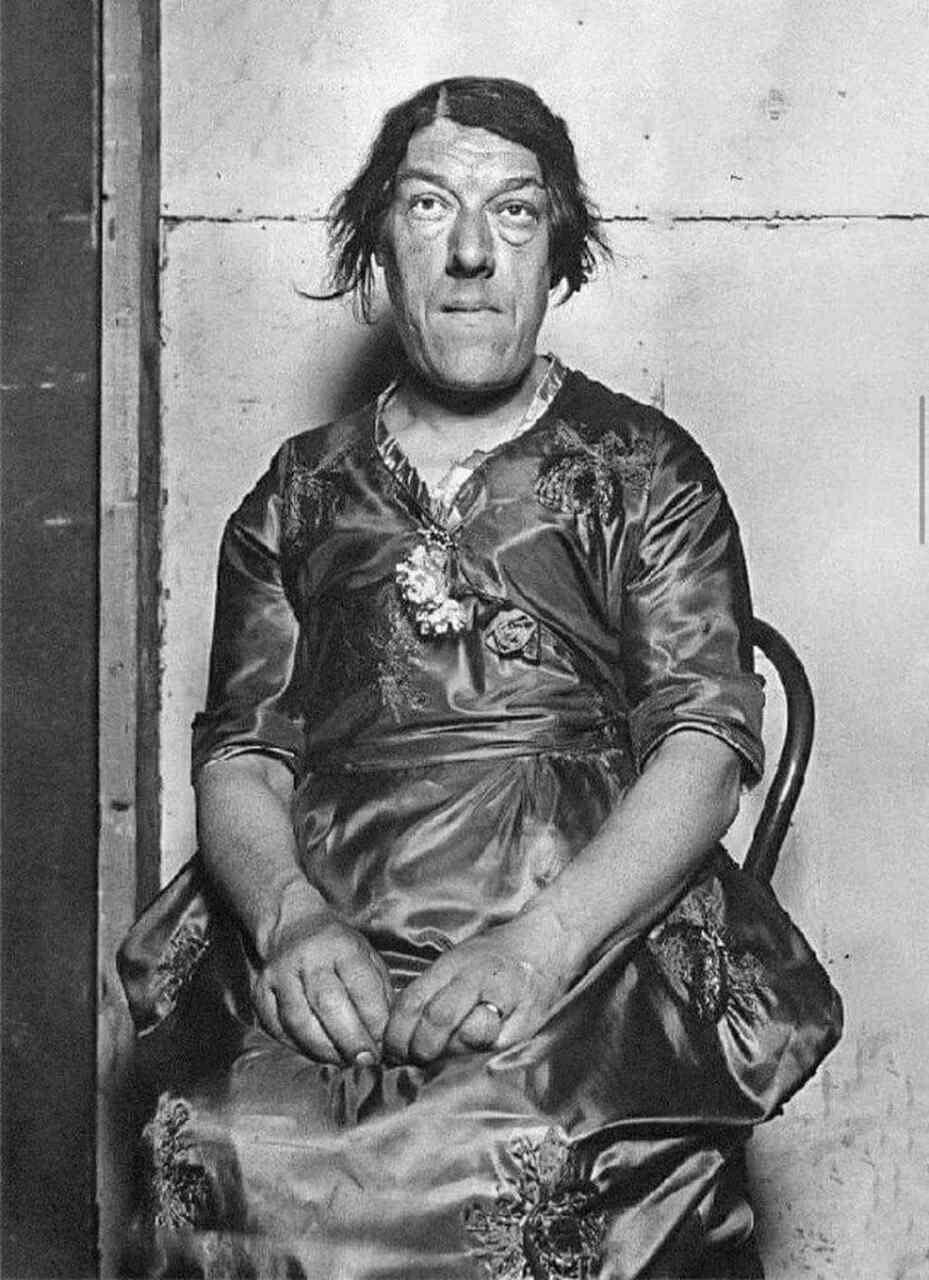The life of Mary Ann Bevan is a powerful narrative of resilience, sacrifice, and love set against the backdrop of a society often unkind to those who stand out. Born in 1874 in Plaistow, East London, Mary Ann’s story reflects the harsh realities of the late 19th and early 20th centuries, particularly for women navigating life with extraordinary challenges. Her tale combines sorrow and strength, shedding light on the exploitative nature of the entertainment industry while showcasing the boundless devotion of a mother determined to provide for her children.

Mary Ann’s life took a drastic turn when she began experiencing symptoms of acromegaly, a rare condition caused by an overproduction of growth hormones. This disorder, which significantly altered her physical appearance, subjected her to ridicule and judgment in a society that valued beauty above all else. While dealing with the emotional and physical toll of her condition, Mary Ann faced yet another devastating blow: the death of her husband. Widowed and left to raise four children on her own, she found herself grappling with societal prejudice that made securing steady employment nearly impossible.
Desperation led Mary Ann to consider a highly unconventional and heartbreaking opportunity. A newspaper advertisement posted by Claude Bartram, a representative of Barnum and Bailey’s circus, sought the “most unattractive woman” to join their act. Though hesitant at first, Mary Ann ultimately answered the ad, motivated by an unwavering love for her children and a desire to provide them with a better life. This decision marked the beginning of her career in the circus, a path that would bring both financial stability and emotional hardship.
Under the stage name “The Ugliest Woman on Earth,” Mary Ann performed at Coney Island Circus, becoming a figure of fascination and controversy. Her story of perseverance captivated audiences, while her unique appearance made her a spectacle. Despite earning admiration from some, she faced mockery and exploitation, enduring the harsh judgment of a society eager to profit from her differences. Her life in the circus exemplified the ethical dilemmas of an entertainment industry that often prioritized spectacle over humanity.
Behind the scenes, Mary Ann faced the personal pain of societal criticism and the weight of being viewed as an oddity. Yet, she never wavered in her mission to provide for her family. The money she earned allowed her to send her children to better schools in England, ensuring they had opportunities she never had. Her sacrifices highlight the extraordinary lengths a mother will go to for the well-being of her children, even at great personal cost.
Mary Ann’s story serves as a lens through which we can examine the darker aspects of the entertainment industry. While her performances brought her temporary financial security, they also revealed the exploitative practices that turned individuals into commodities for public amusement. Her journey underscores the importance of recognizing the humanity behind the spectacle and the cost of curiosity that borders on cruelty.
Mary Ann Bevan passed away in 1933 at the age of 59. Her legacy, however, extends far beyond the stage. She left behind a story of unyielding love and resilience, a testament to her strength and dedication as a mother. Her final resting place in Ladywell and Brockley Cemetery in South London stands as a tribute to her extraordinary life and unwavering spirit.
The impact of Mary Ann’s story lies not in wealth or fame but in her selflessness and determination. She remains an enduring symbol of a mother’s boundless love and the sacrifices made to ensure her children’s future. Her life invites reflection on societal values and the way we treat those who are different, urging us to prioritize compassion and understanding over judgment.
Mary Ann Bevan’s journey is a poignant reminder of the strength of the human spirit. Despite the adversity she faced, she rose above her circumstances to fulfill her ultimate goal: creating a better life for her children. Her legacy is one of courage, resilience, and the extraordinary power of love—a story that continues to inspire and resonate with audiences to this day.

